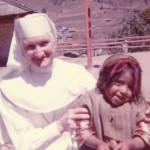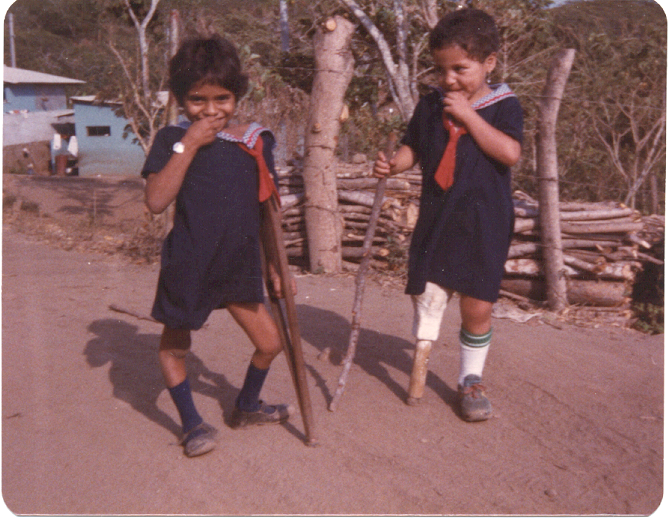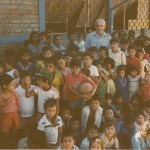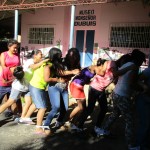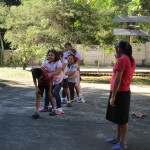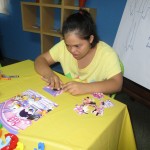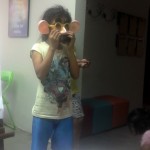COAR and our generous donors have always responded to the needs of the poor, neglected and at-risk children of El Salvador. In the 1980s, COAR grew organically out of the reality. With the Salvadoran civil war raging in the countryside, war orphans were appearing daily at the Church in Zaragoza on the outskirts of San Salvador. Afterall, no one was safe: Archbishop Romero and the four Churchwomen from the USA had just been executed. Priests, catechists, journalists, community organizers, and even the humble rural farmers were under attack. The Sisters from the Incarnate Word Congregation in Houston answered Father Ken’s plea and came to Zaragoza in those early years to shelter, educate, feed, and provide basic healthcare to a generation of war orphans in desperate need of protection.
In the late 1990s, with the war over but civil society in ruins and no true social infrastructure to serve the poor, priests and relatives brought desperately poor and starving children to COAR. These children represented the 2nd generation of COAR internos: the desperately poor, hungry and abandoned children often of single mothers whose husbands either died in the war or had left the country in search of work. Often, a mother might have had 6 children and she simply couldnt afford to feed them all. So, in an act of true sacrifice, she would turn over one or two of her youngest children to COAR so that we could feed, clothe, educate and protect them. For these children, COAR saved them from starvation, extreme poverty and neglect.
But now, in 2016, El Salvador faces another challenge and COAR is adapting to serve the needs of the vulnerable, poor and neglected children. After more 35 years since the end of the civil war, although the fighting has long since ended, civil society has not built the infrastructure needed to support the poor. For more than 20 years, the US has deported Salvadoran criminals back to El Salvador – into a society unable to reform or educate them. Now, El Salvador is the Murder Capital of the World. With few jobs, limited educational opportunities, and violent crime rampant, life is even more bleak for Salvadoran youth.
Amidst this turmoil, COAR remains an island of safety and protection for the poor and at-risk children of El Salvador. Beyond housing, feeding and educating these children, COAR is leading the entire foster care community by recognizing that the next generation of workers and leaders need more. In order to build a healthier tomorrow, COAR and the other foster care organizations need to give these children the emotional and psychological support to overcome their traumatic and often abusive backgrounds. Through the vision of our Salvadoran Director, COAR is the 1st foster care facility in El Salvador to have its own Play/Art Therapy center.
It is now our hope that upon graduation from COAR, these children have developed the strength of character and will to go out into this dangerous world and overcome those obstacles. During the war years, one can only imagine that the goal was to protect and care for the war orphans. But, today, the challenge is even greater. Many will tell you that the entire Salvadoran society was damaged from the war and the exodus of young people in search of work. The only way that El Salvador can recover is to heal those emotional wounds and build a new generation of young people who can overcome this background and build a better tomorrow. COAR is leading that effort. In 2016, the Therapy Center will mark its first year anniversary. With each new challenge before us, COAR hopes to adapt to best serve the needs of the children.

